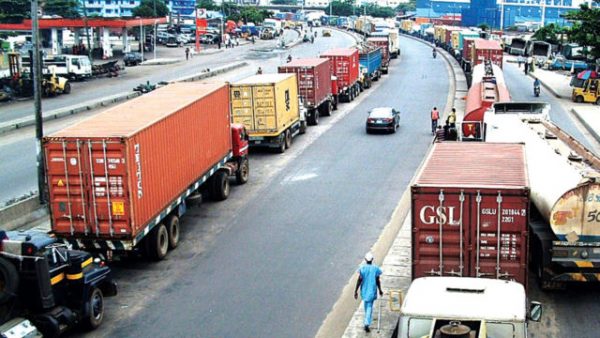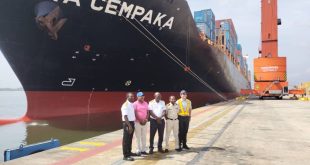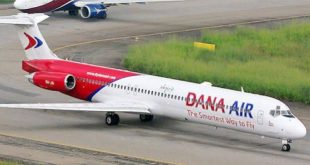Standard operating procedures for the haulage industry have been unveiled to truck owners, drivers and companies as well as members of the organized private sector by the Federal Government at a meeting in Lagos.
The meeting called at the instance of the Nigerian Shippers’ Council(NSC), the nation’s port economic regulator was aimed at sanitizing the haulage subsector which has become an all-comers’ affair without regards for ethics in business.

According to the Executive Secretary of NSC, Barr. Hassan Bello, “We are going to have conditions for operating a haulage company. We are going to have a minimum of six trucks for a company, a company have a registered office, have an insurance for goods on transit, have a tracking device,among others. Any company that does not have the capacity to own six trucks will not be allowed to operate. Its implementation will be gradually done.
“Even now, there are some good trucking companies, but we need to have more of them. Nigeria is going to have a lot of project cargo in import and export but we need the trucking system to be organized. We are expecting that in three years time everything would have taken shape. Besides, the trucks are going to have competition from the rail. For now, to take a truck from Lagos to Yola, it costs N1million. By rail will give you may be N300,000. People have started having issues with rail now but we are telling them to be calm.” He added.

Addressing members of the League of Maritime Publishers and Editors at a separate meeting with him, he said, “We want you guys to focus on the issues that have to do with the economy because there is hope. I am very optimistic that what is happening at the port will go away by December. The roads would have been fixed to a reasonable extent and the congestion would have stopped.”

“However, haulage is important to the economy. Germany with all its sophistication, 30 per cent of their carriage is by trucks. So when we have the roads done we are going to re-fleet the trucks. We are going to have conditions for operating a haulage company, Hassan said.
Recall that MMS Plus had last week reported that the Council would be introducing a new tariff structure for trucks.
Reacting however to the tariff structure and the standard operating procedures for the trucking industry, the Executive Secretary of National Association of Road Transport Owners(NARTO), Mr Aloga Ogbogo said in a separate interview with MMS Plus that government cannot be said to be regulating the haulage industry when it cannot regulate the prices of spare parts, Automotive Gas Oil(AGO), and the expenditures incurred as a result of bad roads.
Ogbogo further argued,”When was the last time the Federal Government reviewed the freight rate in Nigeria? What was the percentage in change in price of the AGO the last time they did the price review and now? How do you regulate freight rate when you cannot regulate other variable factors that build up the rate? If you have to regulate freight rate, the price of AGO has to be factored in. There is also the issue of insecurity on the road, and the journey dwell time. So, you cannot determine the cost of transportation without these variables.”
On the operating procedures, the NARTO scribe reasoned that the transport sector as important as it never gets any bail out or support financially from the government even in most critical moments
“There is the Bank of Agriculture for the agriculture sector, there is also the Bank of Industry for financial assistance to industrialists but there is no transport development bank for the operators in the transport sector. This argument has been advanced for some time now,” he noted
According to him, the government regulation must be holistic if it must be and in that case,” We should look at the issue of training and re-training of drivers, granting of financial assistance to the operators, and transportation should not be an all-comers’ affair. Again, we are talking of regulation when we don’t have a standard truck park. The only space we have has been sold to a company.
“The government is not even playing its role as a regulator. For instance, look at Apapa port access roads. The government licensed 63 tank farms and each has the capacity to take 200 trucks. Before granting the licence there should have been a condition for the provision of a holding bay for each of them.” He added.
Contacted also, the President of Road Transport Employers Association of Nigeria(RTEAN), Chief Musa Isiwele said they were still studying the report of the truck tariff and standard operating procedures as discussed while the Chairman of the Association of Maritime Truck Owners(AMATO), Chief Remi Ogungbemile avoided his calls.
Speaking on the on-going review of the concession agreement in which some critical stakeholders were alleged to have been excluded in the committee, Bello said: “What happens to the port affects everything, modern port is about connectivity, which means you have to have a broad agreement through bringing various interests together . You need to bring stevedores, truckers, insurance, shippers, freight forwarders, Nigerian Ports Authority(NPA), which is also a party, so you cannot run an agreement when you also have obligations. This is an open society, so you cannot manipulate things, whatever you do will affect the larger society. That is why we are suffering now. That agreement was hidden from Shippers council for than one year after it was signed. Everybody was hiding it just like the charter party agreement of the Nigerian National Petroleum Corporation(NNPC). They hide it and say it belongs to them. No. It belongs to Nigerians! It is meant for the people to see and comment on areas for improvement”
The NSC was presented with the letter of a Corporate Award for Port Economic Regulations in Nigeria, by the League of Maritime Publishers and Editors. The award will be officially unveiled at the forthcoming 20thAnniversary ceremony of the association billed for November 29th, 2018 at the Sheraton Hotel, Ikeja Lagos.
 MMS PLUS NG – Maritime, Aviation, Business, Oil and Gas News Online Newspaper with coverage in Maritime, Oil and Gas, Aviation, Power and Energy as well as Financial News
MMS PLUS NG – Maritime, Aviation, Business, Oil and Gas News Online Newspaper with coverage in Maritime, Oil and Gas, Aviation, Power and Energy as well as Financial News










